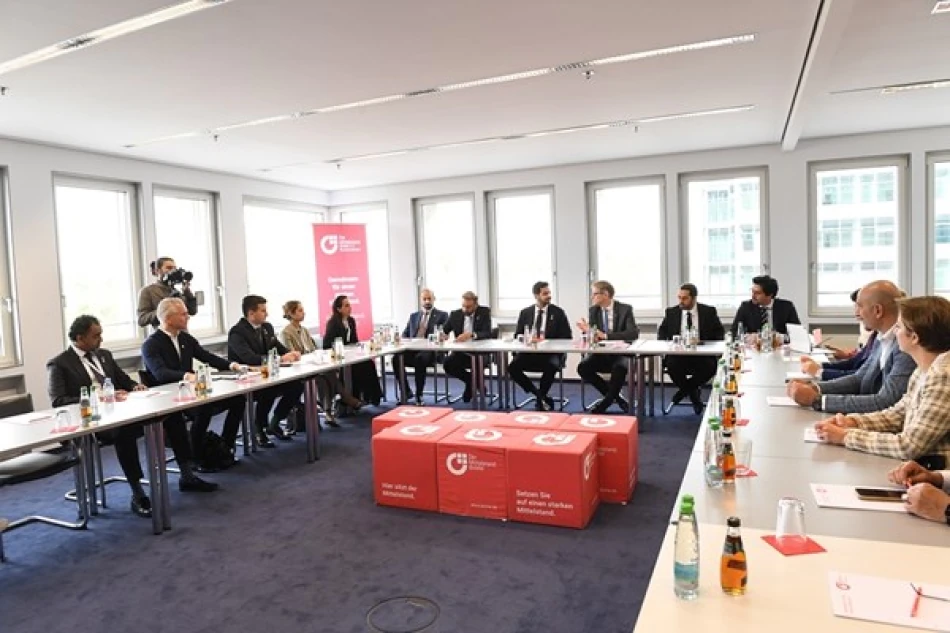
Abu Dhabi Family Firms Explore Expanding Collaboration with German Enterprises
Abu Dhabi and Germany Forge Strategic Alliance to Unlock Family Business Potential
A high-level economic delegation from Abu Dhabi has concluded pivotal discussions with Germany's leading family business organizations, signaling a new chapter in UAE-German economic cooperation. The talks, centered on leveraging the combined strength of family enterprises that dominate both economies, could reshape bilateral trade relationships and create substantial investment opportunities in key sectors including renewable energy and digital transformation.
The Economic Powerhouse Behind the Partnership
The timing of this collaboration reflects the strategic importance of family businesses in both nations. In the UAE, family enterprises constitute 90% of all private companies, contribute approximately 60% to GDP, and provide 80% of private sector employment. This mirrors Germany's economic structure, where family businesses form the backbone of the renowned "Mittelstand" – the country's small and medium-sized enterprise sector that has driven decades of export success.
The Abu Dhabi Family Business Council's mission to Berlin represents more than diplomatic courtesy. It signals recognition that sustainable economic growth increasingly depends on the resilience and adaptability that family businesses demonstrate across market cycles.
Strategic Partnerships Take Shape
German Family Business Foundation Collaboration
The delegation's meetings with the German Family Business Foundation, established in 2002, provide access to extensive research capabilities and strategic data covering over 1,200 family enterprises through their FamData database. This partnership offers UAE businesses proven methodologies for succession planning, governance structures, and digital transformation strategies that have sustained German family businesses through multiple economic transitions.
SME Alliance Opens New Channels
Discussions with Germany's Federal Association of Small and Medium-sized Enterprises (BVMW) – representing over 900,000 companies with 85 international offices – create direct pathways for UAE family businesses to access European markets. The BVMW's extensive network across 30 specialized industrial associations provides UAE enterprises with sector-specific expertise and market entry strategies.
Market Implications and Investment Opportunities
This collaboration arrives as both nations prioritize economic diversification and sustainability transitions. Germany's expertise in renewable energy technology and industrial automation aligns with the UAE's Vision 2071 and net-zero commitments. Family businesses, with their long-term investment horizons and patient capital, are ideally positioned to develop the infrastructure projects and technology partnerships these transitions require.
For investors, the partnership signals potential opportunities in joint ventures spanning manufacturing, clean technology, and digital services. The emphasis on governance mechanisms and succession planning suggests both sides recognize the need for institutional frameworks that can support larger-scale, multi-generational business relationships.
Learning from Global Best Practices
The UAE's approach mirrors successful strategies employed by Singapore and Hong Kong, which have leveraged partnerships with established business ecosystems to accelerate economic development. However, the focus on family enterprises represents a more nuanced approach, recognizing that sustainable partnerships often depend on personal relationships and shared values that transcend purely transactional arrangements.
Germany's family business model offers particular relevance for Gulf economies seeking to balance rapid growth with long-term stability. German family enterprises have demonstrated remarkable resilience through multiple economic crises, maintaining employment levels and innovation investments when publicly traded companies often retreat.
Beyond Bilateral Benefits
Khalid Al Fahim, Chairman of the Abu Dhabi Family Business Council, emphasized that the collaboration extends beyond immediate commercial benefits. The partnership framework could serve as a template for similar initiatives across the GCC region, potentially creating a network of family business alliances that spans from the Gulf to Central Europe.
The focus on digital transformation and sustainability reflects recognition that family businesses must evolve rapidly to remain competitive. German expertise in Industry 4.0 applications and circular economy principles provides UAE enterprises with proven pathways for technological advancement while maintaining their distinctive cultural values and business practices.
Strategic Timing in Global Context
This partnership emerges as global supply chains undergo fundamental restructuring and businesses seek alternatives to purely cost-driven sourcing strategies. Family businesses, with their emphasis on relationship-building and quality standards, are well-positioned to benefit from trends toward supply chain regionalization and sustainability requirements.
The collaboration also reflects broader geopolitical shifts, as both the UAE and Germany seek to diversify economic relationships beyond traditional partners. For European businesses facing uncertainty in other markets, the Gulf region offers political stability and growing consumer markets, while UAE enterprises gain access to advanced manufacturing capabilities and established distribution networks.
Most Viewed News

 Layla Al Mansoori
Layla Al Mansoori






